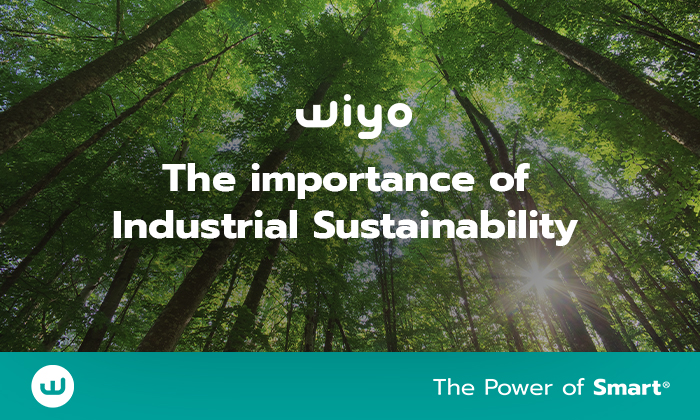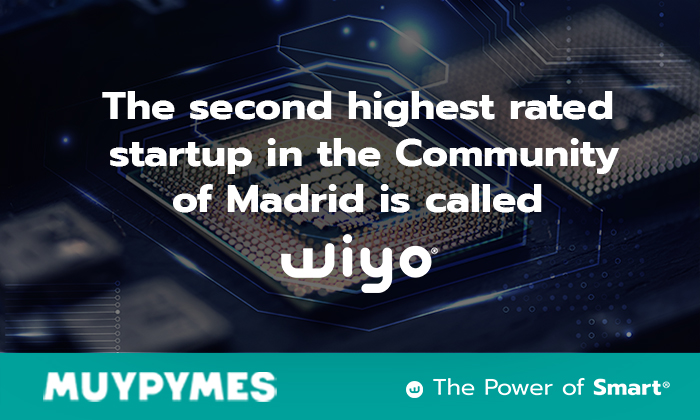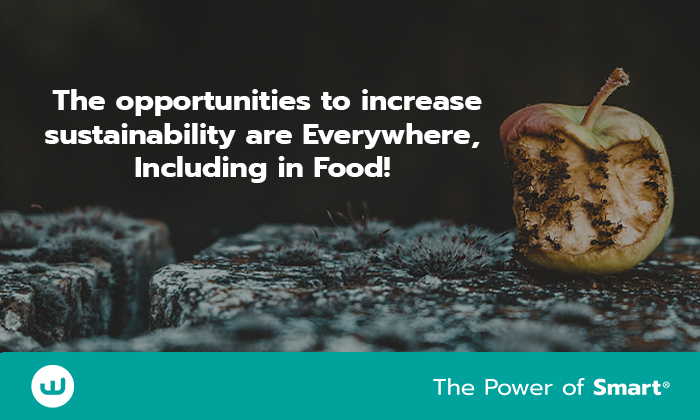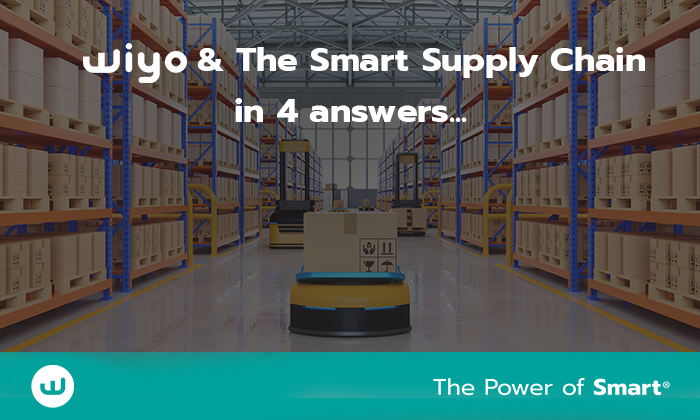How does Wiyo contribute to the industrial sustainability process?
Wiyo is an IoT-based data platform that, when integrated with any digital solution or business management system, provides quality data to—among other things—enable efficient decision making and optimization of operations, complying with sustainability and corporate responsibility commitments.
The key to Wiyo lies in the technology it uses for data capture. It uses the only battery less tags in the IoT market, which only require WiFi energy to power and communicate. It is a disruptive and innovative technology that raises the capacity of the digitization of all industries and, therefore, the increase in sustainability processes and the reduction of the carbon footprint.
Jeff Merritt, Director of Urban Transformation at the World Economic Forum, established IoT as an essential tool in the fight against climate change. The applications of IoT in sustainability are innumerable, from measuring toxic substances to transforming industrial processes.
Wiyo does not use batteries in any of its processes. What benefits does this provide?
Wiyo IoT tags, capture and collect the energy available from WiFi to transform it into the energy needed to power the tags, both in their activation and communication process. This capability avoids the use of batteries, which is a very environmentally friendly practice, avoiding a higher level of contamination.
Wiyo is the only IoT-based data platform that can provide massive, simultaneous, real-time data at the industrial level. Currently, the options with industrial capacity either use batteries, or RFID-based solutions with the technical and cost limitations that this technology has. Some even use the integration of several technologies to cover as many areas or “blind spots” as possible to obtain better results.
Wiyo offers identification and data capture through the presence of simple WiFi readers, certified by the manufacturer for the correct operation of the technology. At a cost level, Wiyo’s implementation is a zero-capex technology and very easy to install, configure, and maintain, which is a significant financial advantage. It is a disruptive technology that allows companies to be accompanied in a scalable way through any digitization or sustainability process.
Wiyo digitizes industrial processes. What does this consist of, and how does it positively contribute to a company’s sustainability processes?
Digitalization and sustainability are cross-cutting terms that affect all supply chain stages, from manufacturing to the end customer.
Companies must rely on quality data to improve productivity, reduce waste or energy consumption, and eliminate overproduction.
Any object or product containing a Wiyo IoT tag, will be able to permanently interact with the data platform, which will provide quality data packages that will be easily integrated through APIs to any digital solution, allowing them to digitize operations in an automated way, providing complete visibility and transparency of processes.
An example of use would be identifying potential resource failures and inefficiencies and making agile and even automated decisions through integrations with analytics systems for identification, prediction, and prescription. Efficient use of resources can lead to an improvement in reducing a company’s carbon footprint.
Supply chains have a big impact on the environment. How is Wiyo able to reduce this impact?
Supply chains have become a key factor in the fight against climate change (according to a study by Accenture, 60% of global emissions are generated by supply chain). Companies are aware of this fact and are looking to IoT as the key to connecting their end-to-end supply chain while reducing their environmental impact.
Wiyo is the only IoT-based data platform that does not use batteries in the data capture process, and uses edge computing in its data processing, which adds an additional advantage, as it doesn’t depend on the presence of the internet to continue uninterrupted processing. This quality enables non-stop traceability in the supply chain with low impact. Within the multiple advantages of visibility, it allows a correct planning and agile decision-making to generate an efficient management and consumption of resources, making it easier for industries to join the digital transformation process and support the increase of industrial decarbonization.
What is Wiyo’s current philosophy that will contribute to a much more sustainable future?
Wiyo was created to make innovative and environmentally friendly technology available to all integrators and companies, and be compatible and integrable with any existing technology, solution provider, or digital service. Wiyo’s intention through current or new players responsible for the processes and services that impact all aspects of society, is for all people to have a better quality of life, and for the process of digitization to be relevant in a positive way in the day-to-day life of industries and people—in short, making use of technology to create a better future.




